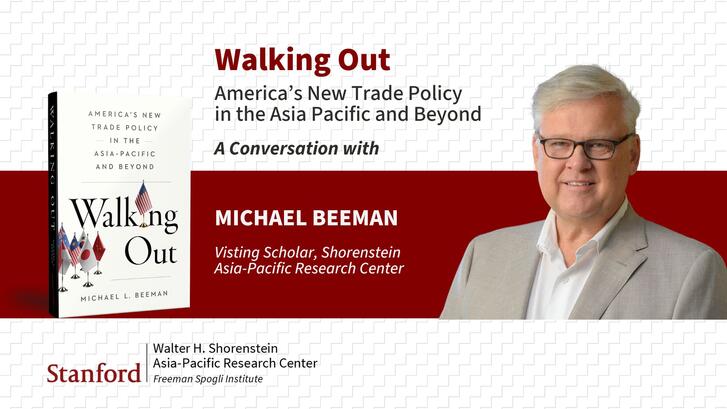Convening at Stanford
In Yoon’s opening remarks, he reflected on how Stanford is entwined with Korea’s own efforts to expand educational opportunities in the field of science and technology.
Yoon shared how in the 1960s, then-President Park Chung Hee reached out to the U.S. for help in cultivating South Korea’s engineering talent.
Frederick Terman – who served as dean of the School of Engineering from 1944 to 1958 and provost from 1955 to 1965 and is known as “the father of Silicon Valley” – visited Korea and compiled his observations in The Terman Report. This report, which included contributions from four other experts, led to the creation of the Korea Advanced Institute of Science in 1971, which later was renamed Korea Institute of Science and Technology, or “KIST.”
“At that time, Korea was one of the poorest countries in the world, but policies for establishing a scientific and technological state with KIST at the core has resulted in Korea achieving the current status of freedom and prosperity,” Yoon said. “Just like the motto of Stanford, the winds of freedom blew all the way across to Korea.”
Now, Yoon said he and Kishida are expanding the scope of Korea-Japan relations to include cultivating collaboration in science and technology in their diplomacy.
Technology can propel economic growth, creating new jobs and opportunities, Yoon said. But he also warned that technology can leave some people behind.
Yoon emphasized that the three countries must work together to reduce the digital divide and ensure that the world has fair access to new technologies – “and thereby contribute to the sustainable peace and prosperity of the international community through such trilateral cooperation,” he said.
Yoon also urged for trilateral cooperation in accelerating the pace of advancement towards carbon neutrality goals with carbon-free energy technologies such as nuclear power and hydrogen. Yoon also said he “is looking forward to proposing the establishment of a hydrogen ammonia global value chain in which Japan and Korea will be the main participants.”
Addressing the climate challenge
The leaders referenced equity, carbon neutrality, and clean energy again when Rice asked them about their plan to address the current climate challenge.
Yoon shared his concerns about the uneven effects of carbon emissions, pointing out how advanced economies have emitted more carbon dioxide compared to developing or low-developed countries, yet it has been the developing nations that are most negatively impacted.
“We have to cooperate internationally to help bridge the climate divide,” Yoon said.
Kishida cited the Doerr School of Sustainability – which was made possible through a generous gift by the engineer and venture capitalist John Doerr – as an example of entrepreneurs making investments in innovative, sustainable solutions to the climate crisis.
The potential in quantum technology
Rice also asked the leaders about quantum technology, which the Biden administration has invested over $1 trillion in advancing.
Kishida said how the full transformation of quantum technology has yet to be imagined – “quantum technology is a complete game changer,” he said.
For example, Yoon said, quantum technology has the potential to disable encryption systems or wiretapping. He also pointed out how it can also lead to improvements in the detection of submarines – prompting new implications for national security.
Yoon and Kishida both saw opportunities for Japan, Korea, and the U.S. to work together, emphasizing how each country has strengths and weaknesses that can complement one another.
“Quantum technology, I believe, is the area where global cooperation is the most crucial because there is no one country in the world that has a complete understanding of it,” Yoon said.


























